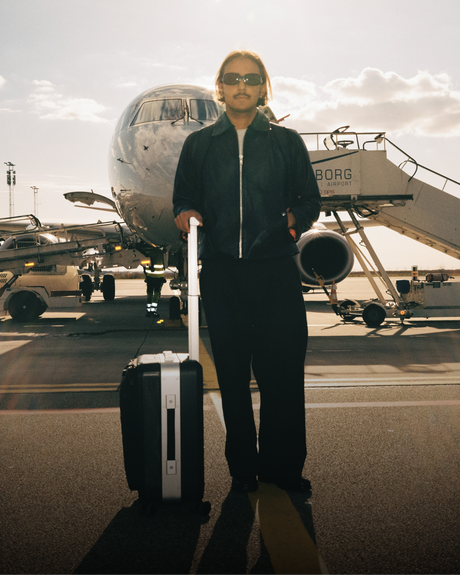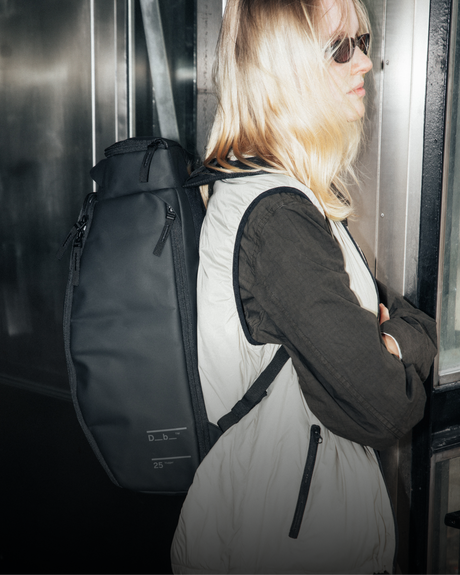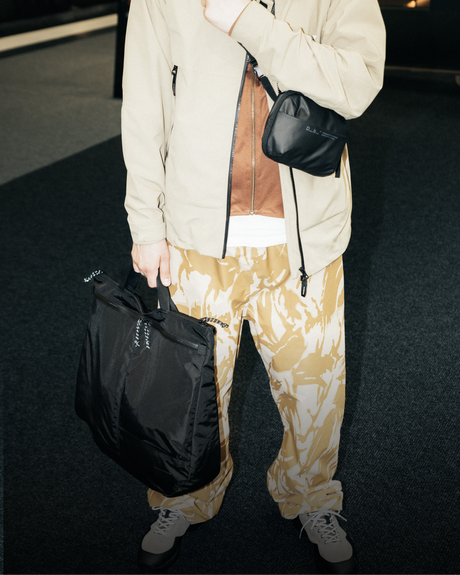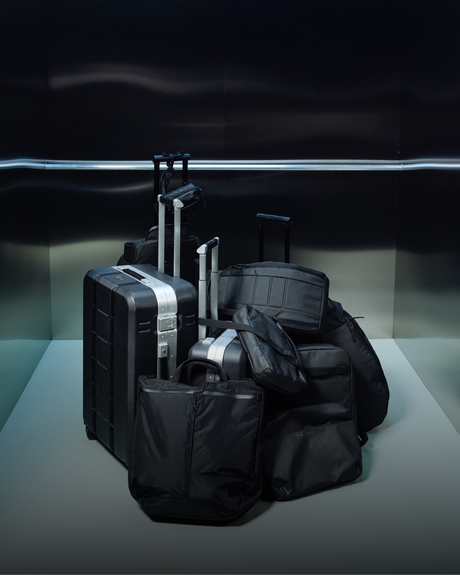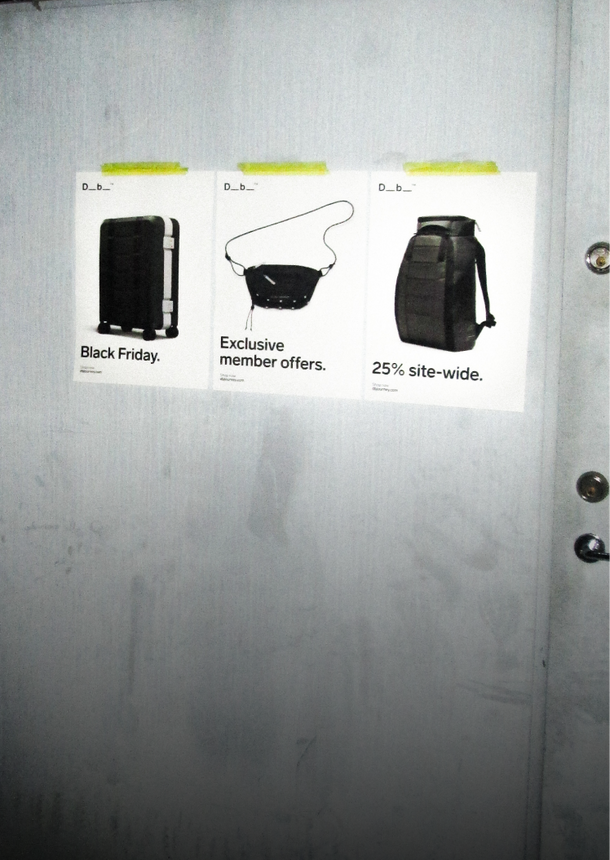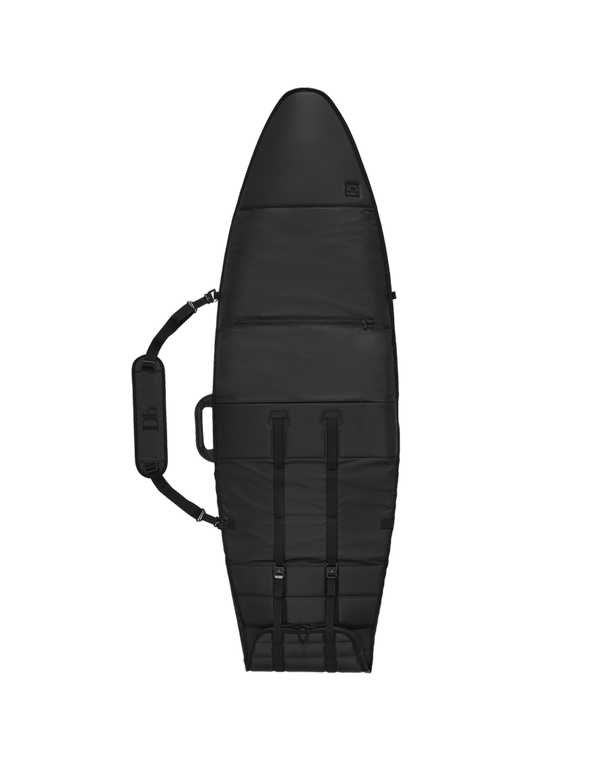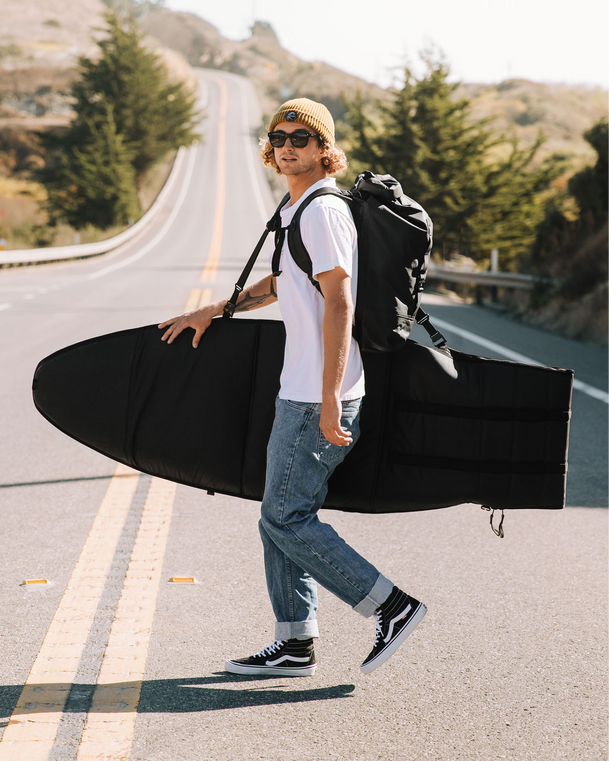Catching up with Taylor Paul
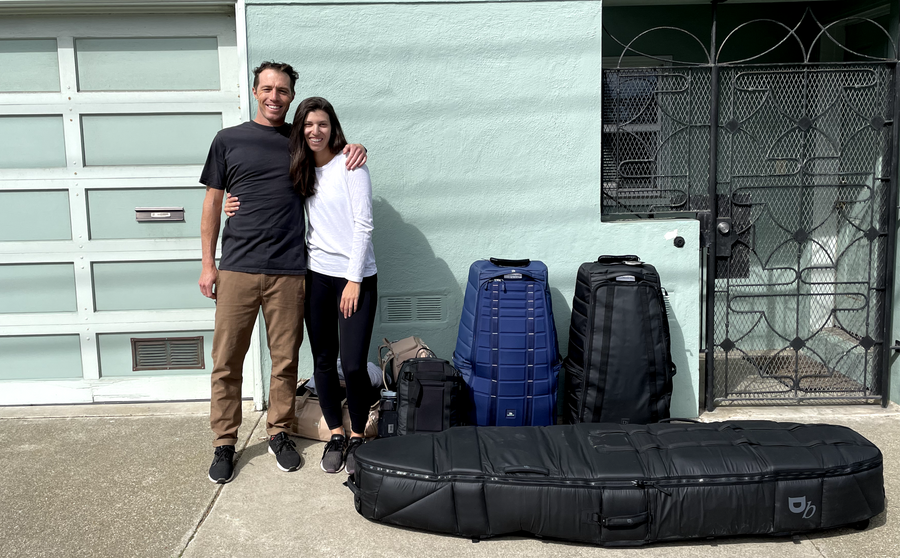
When he quit his role as full-time copywriter, we managed to persuade him to do some light work in the form of virtual postcards. They began at the start of the pandemic, an uncertain time when the world was continually flirting with the idea of opening its doors again, only to slam shut with each variant.
Taylor’s postcards gave our audience something to look forward to each Sunday. The escapism they provided was addictive, and it’s about time we caught up with our human portal - the guy who took us round the world with him when we needed it most.
Db: Hey Taylor, how are you doing?
Taylor: Good thanks. We got married - it was awesome, we’re now looking at buying a house. I said on my last postcard that Dana and I were ready to become yuppies, and we’re really doing it. Ha!
Db: Many people from our community know you from the Postcards you wrote for a year. How was that idea born?
Taylor: The postcards started because I was doing copywriting for Db around the time the pandemic started. Chris Booth, who I had worked with at a previous company, got inspired by an email newsletter that was sent out by Dropbox and he asked me whether I would like to send out these postcards. He told me I could write about whatever I wanted. He said nobody at the company should corrupt them with trying to sell products. Ha! This was during the first lockdowns and it was a really stressful, uncertain time. I was writing them from my perspective, thinking it would be over in a few months. It started as being really optimistic and it was actually really helpful for me to be able to process everything - from having to stay home and all the limitations. In the background, my wife Dana and I had this big trip planned that we knew we wanted to do before we got married. We both quit our jobs but I kept up the postcards - so it was kind of perfect, really. It started as a COVID memoir and ended up as an actual postcard from the road. Having a deadline every week forced me to document the journey - from getting trapped in Uganda to getting Covid in Kyrgyzstan - sharing the highs and lows of travel. What’s crazy is I didn’t think anyone read them. It wasn’t until we ended them that I actually saw the comments on Instagram. It was just really flattering.

Db: Do you have a favorite?
Taylor: There was one in the early days where it was talking about what it would be like when COVID ended. I called it the Spring of Springs - this crazy excitement and rebirth of the world. It didn’t happen quite like that - it was a little slower. But I liked the sentiment of that one a lot - it may have even been the first one I wrote. I liked my last one too - where Dana and I were wrapping up our seven month trip. I think we were at the Grand Canyon and I had never been there. The sentiment of traveling somewhere in your backyard - I think that was a feeling I encouraged and pushed.
Db: Do you still write them?
Taylor: No - I mean, I stopped doing the postcards because I took a job at Stab. I have an email I send out each week, but that’s more of like a preview of what’s coming next on Stab. It’s much less of a personal reflection. Right now, it’s just such a good reminder of how good the postcards were - they felt really authentic and really genuine - all in the first person. When you’re not using the word ‘I’, you don’t get into the weeds. The postcards felt touchy feely.

Db: Not sure if many people know this, but you’re a big wave surfer as well. How did all that start?
Taylor: I think my love of big surf stems from the insecurity of not being able to surf small waves very well. I’m half joking, but not really. There is an element where you only need to stand up and go straight on a big wave, yes, but It’s much more of a mental thing - controlling your mind and your emotions. It's about finding what you can control in this really uncontrolled environment and working with whatever information you have in front of you. It’s much more of a mind game - you don't have to be the most talented to be the best at it. You just had to work hard for a long time and work up to it. I have been inspired and excited by big waves since I was about fourteen - I knew I wanted to surf Mavericks. I started at Pleasure Point as big as it got, then went to Steamer Lane as big as it got. In my senior year at High School I woke up after a night of partying and heard that Mavericks was breaking. I drove out by myself, paddled out by myself and met some buddies out there. I got one really good wave, kicked out, and saw the next wave shifting over and about to just unload on me and I just got completely worked. It was the perfect introduction to big waves - a real high point and a real low point. I just liked the excitement of it and how good you felt when you got back to shore.
I have interviewed a lot of surfers - big waves and small waves. The big wave guys always give you really deep answers but the small wave guys keep it kind of surface level - there’s not much meat on the bone. I remember asking Shane Dorian ‘why do you think that is?’ and he said ‘I don’t think small wave surfers think about death every time they paddle out. If you’re going to surf 3ft Huntington Beach to do airs, you don’t think about dying, but if you’re going to surf Mavericks or any of the other big waves, you do think about that. You take stock of life a bit more.’ I’m a better person when I surf big waves.

Db: Do you see some similarities between surf and work?
Taylor: Yeah, I actually had one of my co-workers at Stab ask me that the other day. We were in a stressful situation and managing a bunch of things and he asked me whether I was stressed or not really because I was ‘Mr Big Wave Guy’. There is an element of that, of controlling your emotions, seeing things objectively and working out what is and isn’t in your control.
Db: You’ve seen a lot, and you experienced a lot. What kind of advice would you give to a young creative?
Taylor: Have as many experiences early in life as you can. Some people feel that when they get out of university they need to get out and get a job and go, go, go. Yes, you would start climbing the ladder more quickly, but if you wait a little bit you get more human experience and when you start on the career ladder your climb will be quicker. I think you have some more conviction in knowing what you actually want to do, having those experiences definitely helped.
Explore more from Departuresboard here.
